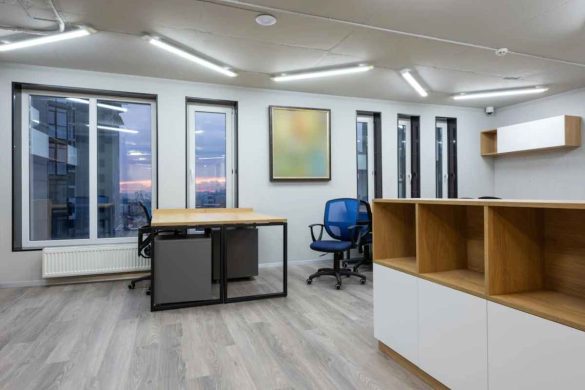Managing the energy consumption of a facility can be a daunting task. Whether it’s a large corporate office, a manufacturing plant, or a college campus, efficient energy usage is vital for reducing operating costs and minimizing environmental impact. In this post, we’ll explore smart and effective energy strategies that facility managers can implement to optimize energy use and drive sustainability goals.
Table of Contents
Energy Audits: Your First Step
Before you can manage energy effectively, you need to understand how and where energy is being used. Conducting an energy audit is an important first step. This involves evaluating the facility’s current energy consumption, identifying inefficiencies, and pinpointing areas for improvement. While professional audits can provide detailed insights, even a basic, in-house audit can highlight significant opportunities for savings.
Optimize HVAC Systems
Heating, ventilation, and air conditioning (HVAC) systems are notorious for being energy hogs. Regular maintenance, such as cleaning filters and checking for leaks, can improve efficiency. Additionally, consider upgrading to newer, energy-efficient HVAC systems with smart thermostats that can adjust temperatures based on occupancy and usage patterns.
Consider Professional Energy Consultation
Seeking professional advice can be beneficial when navigating complex energy markets. If you’re looking to optimize your facility’s energy strategy, you might want to click here for expert guidance and customized solutions. Expert insights can help you secure the best energy plans tailored to your needs.
Encourage Behavioral Changes
Technology and upgrades can only take you so far. A major component of effective energy management is fostering a culture of energy awareness among facility occupants. Simple actions, like turning off lights when not in use or unplugging devices, can collectively lead to significant energy savings. Educational programs and incentives can motivate staff and tenants to adopt more energy-conscious behaviors.
Embrace Energy-Efficient Lighting
Lighting often accounts for a substantial portion of a facility’s energy consumption. Transitioning to energy-efficient lighting solutions such as LED bulbs can significantly slash energy use. LEDs not only consume less power but also have a longer lifespan, which reduces maintenance costs. Consider implementing motion sensors and automated lighting controls to further optimize usage.
Implement Building Automation Systems
Building Automation Systems (BAS) are advanced systems that control and monitor building services such as lighting, HVAC, and security. These systems can make real-time adjustments based on occupancy, time of day, and other factors, ensuring optimal energy usage at all times. BAS can be a game-changer for large facilities looking to enhance operations and reduce energy waste.
Harness the Power of Renewable Energy
Integrating renewable energy sources such as solar or wind power can drastically cut a facility’s reliance on non-renewable energy. While the initial setup costs can be high, the long-term savings and environmental benefits are substantial. Even small steps, like installing solar panels on rooftops or using solar water heaters, can make a significant difference.
Invest in Energy Storage Solutions
Energy storage solutions, such as batteries, can play a pivotal role in managing energy consumption more effectively. By storing excess energy generated from renewable sources or during off-peak hours, facilities can ensure a steady and reliable energy supply. This not only mitigates the risk of power outages but also allows facilities to leverage lower energy costs during peak usage times.
Leverage Energy Management Systems
Energy Management Systems (EMS) are becoming increasingly sophisticated and accessible. These systems allow facility managers to monitor, control, and optimize energy consumption in real time. By providing detailed analytics and insights, EMS can help identify patterns, predict future energy use, and suggest adjustments for effectiveness. This proactive approach can lead to substantial energy and cost savings.
Utilize Energy-Star Rated Appliances
Another effective strategy is to select Energy-Star-rated appliances and equipment. These products meet strict energy-saving guidelines set by the Environmental Protection Agency (EPA) and can significantly reduce energy consumption without sacrificing performance. Whether it’s office equipment, kitchen appliances, or industrial machinery, choosing energy-efficient options can contribute to overall energy savings.
Adopt Green Building Certifications
Pursuing green building certifications like LEED (Leadership in Energy and Environmental Design) can provide a structured pathway for improving energy efficiency. These certifications offer a framework for implementing sustainable building practices and can enhance the facility’s reputation as an environmentally responsible entity. The process involves rigorous assessment and encourages continuous improvement in energy management.
Conclusion
Effective energy management is a multifaceted endeavor that requires both technological solutions and behavioral changes. By conducting thorough energy audits, embracing energy-efficient technologies, leveraging renewable energy, and cultivating a culture of energy awareness, facility managers can make substantial strides in reducing energy consumption and advancing sustainability goals. These strategies not only cut costs but also contribute to a greener, more sustainable future for all.



